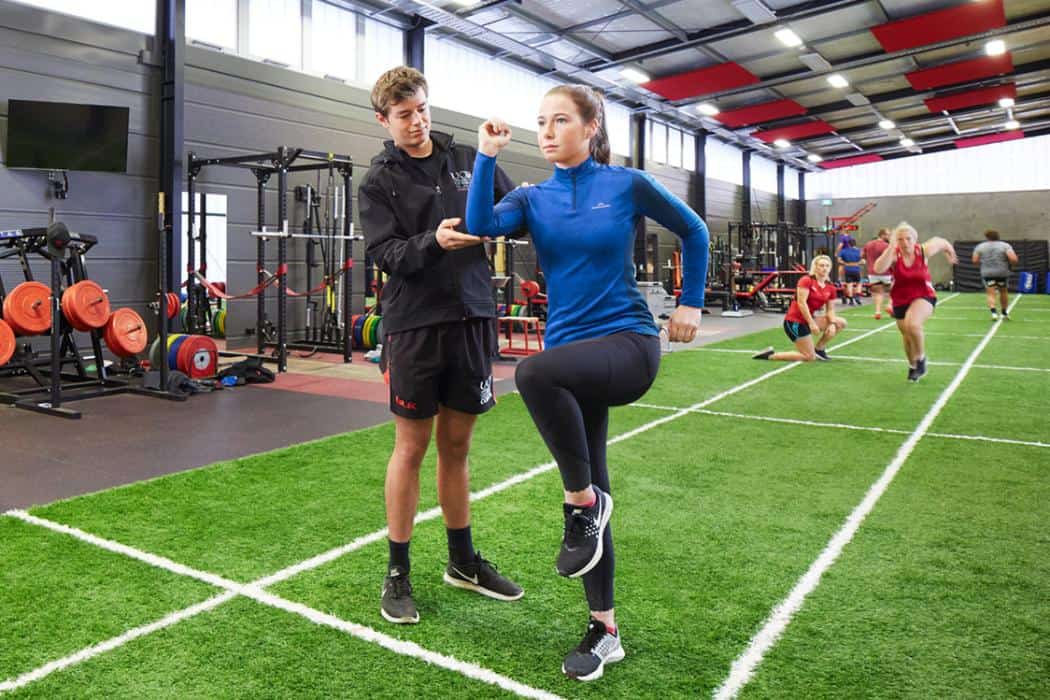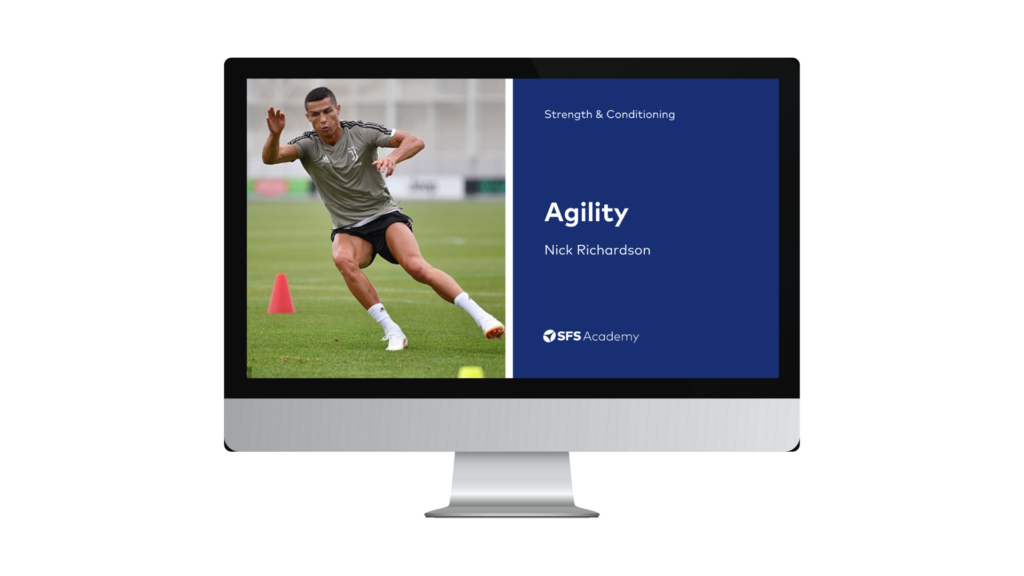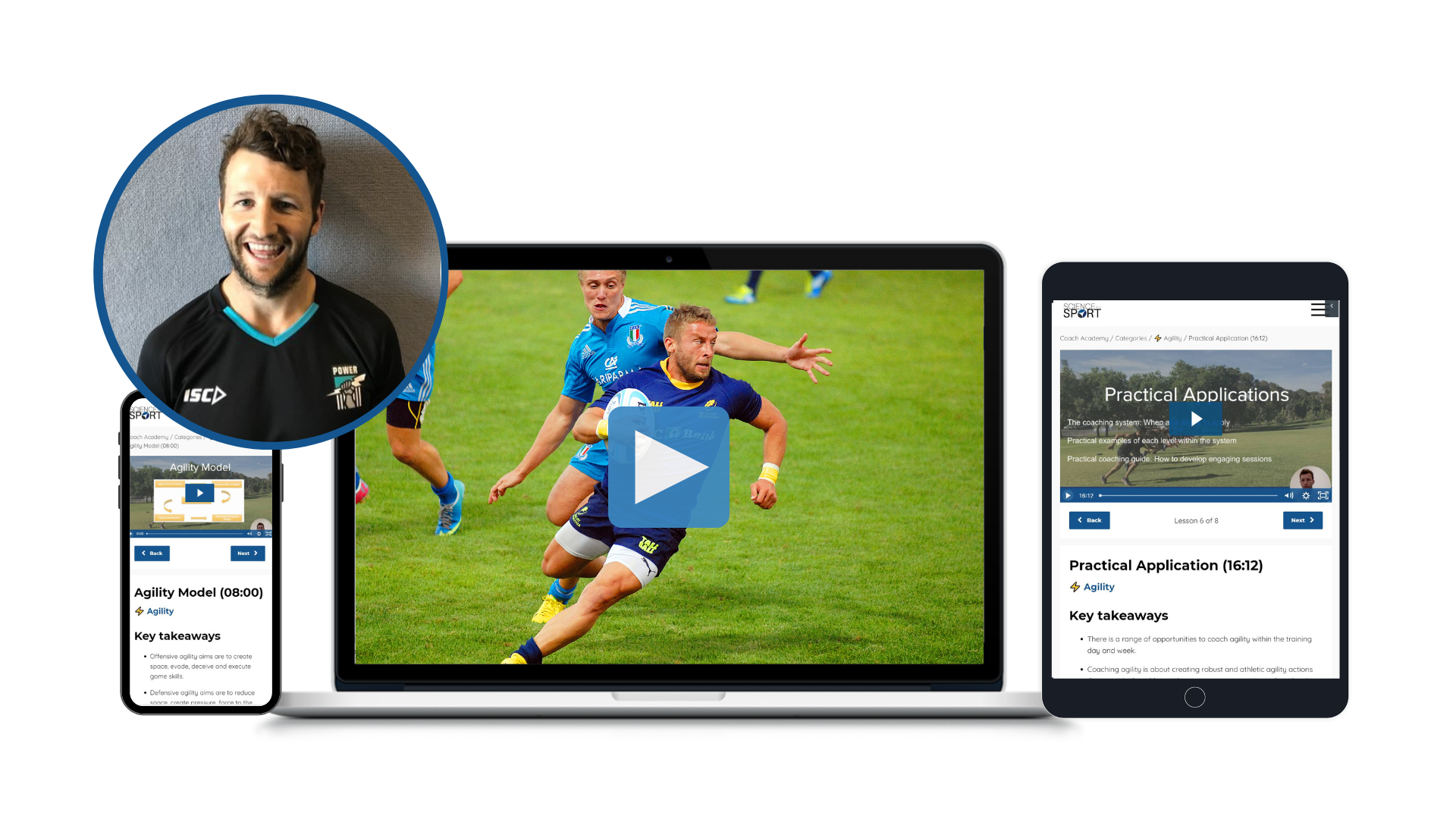The Reality of the S&C Industry for Graduates – An Update
Securing full-time work as an S&C graduate
- Introduction
- An S&C Graduate – One Year On
- Lessons Learned
- Conclusion
- About the Author
- References
- Comments
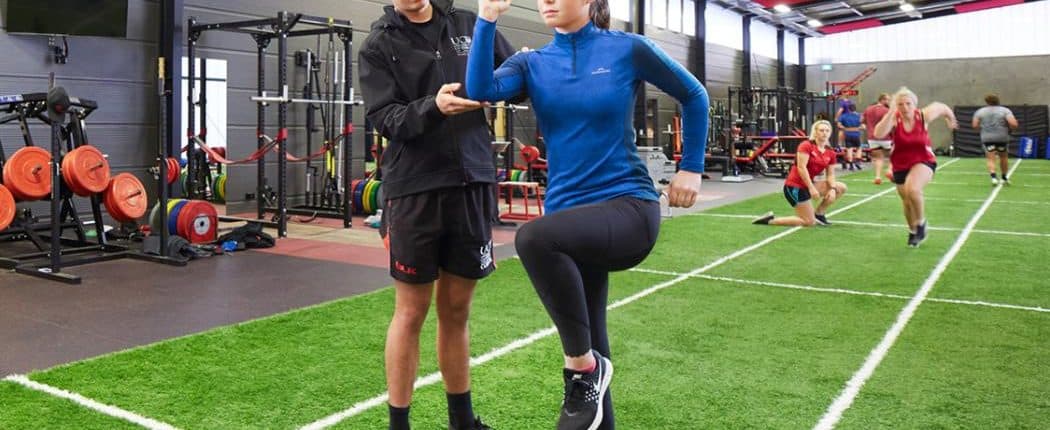
Introduction
As an S&C graduate in the UK, the reality of industry hit me as I finished my master’s degree in June 2019. I instantly began searching for my first graduate role. Fast forward five months and in October 2019, I was still unemployed. I was unable to source any job statistics for S&C Coaches so the best I can find is below, from the UKSCA 2016 State of the Nation Survey. Although this had hopefully and likely somewhat improved between 2016 and pre-COVID-19. Since then, I can only imagine that wherever they were, the statistics have changed in a way that we wouldn’t like them to. It’s certainly changed the way I now coach, behind a mask.
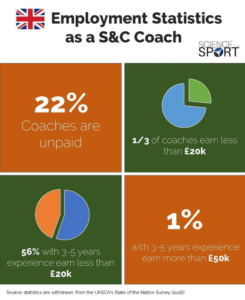
The purpose of this Blog Post is to provide an update on how things can change and improve for young S&C graduates in the UK, despite the uphill circumstances in our way, or the unexpected arrival of something like a global pandemic along the way.
An S&C Graduate – One Year On
After graduation, I was working on my ‘side hustle’ with no income. I had just left a part-time retail job that I could no longer withstand in hopes that it would help me dedicate even more time to securing a graduate S&C job.
- August 2019 – S&C Role 1: I secured a monthly (once per month) role as Research Finder at Science for Sport.
- December 2019 – S&C Role 2: I secured a part-time role as an S&C Coach in the NHS.
- January 2020 – S&C Role 3: I secured a part-time as Content Manager at Science for Sport.
- February 2021 – S&C Role 4: My ‘side-hustle’ Aesthetic Athletes now work in partnership with two different football coaching businesses to develop field skills in football players, a football team, an online youth sports educational platform, 1:1 football players and the general population online only.
- Present – I currently work all 4 of these roles in unison, creating what is a little more than a full-time role.
Luckily, all of these roles have managed to continue and even prosper throughout the COVID-19 pandemic.
Lessons Learned
There are some suggestions I recommended as a fresh S&C graduate to those becoming S&C Coaches, which remain true now. That isn’t to say my other suggestions in part 1 are not, but more that since writing it, the ones I am going to discuss have been further solidified. The first is that a side hustle does help. It gives you purpose, helps you develop and refine skills that help with employability, helps you find a niche to develop your unique value proposition and brings in some extra income, eventually. My side hustle has managed to adjust and prosper during the COVID-19 pandemic, strengthened my CV and displays unique characteristics in my character that heavily outsell the usual ‘hard worker’, ‘passionate’ and ‘reliable’ candidate.
The second suggestion that remained true is that you can create your own opportunities with ever-growing subsectors in S&C. We ultimately steal so many methods and ideas from other industries… Do you think statistics, reverse engineering or GPS were made for S&C? Of course not. In the same way that S&C was never a field developed to support special populations, Esports or the national health service, we’re growing as a field. If you’re struggling to find a role as an S&C graduate, it might be time to think outside the box.
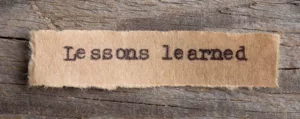
Whether you’re thinking about approaching a unique subsector, applying for a unique role or even just a typical S&C role, it might be worth conducting a needs analysis for the subsector, organisation or role before you worry about conducting one specifically for the athletes, clients or patients themselves. As one of the very few S&C coaches working in the NHS, finding out exactly what that team needs and how I specifically can provide this support is a must. It gives the opportunity you’re trying to create for yourself, your application process and also the work you do once you’re through the door, a true direction and purpose which all align. To continue, the way in which you work can completely change to what we would usually expect. That is job security, set hours and more respectable salaries.
That brings me to my final point from reiterating what remained true. And that is always showing a willingness to develop. When I first accepted my S&C role in the NHS, I switched from the weight room to the wards and worked alongside physios on Major Trauma and COVID-19 wards due to the COVID pandemic, this was before even starting out with my original role in the outpatient’s gym. If you’re applying for a role or trying to create an opportunity for yourself in a new subsector, you may just find that you have to do stuff that isn’t what you may call S&C. Well, if it helps you develop and gain skills in unique ways that other S&C Coaches may not be able to demonstrate to employers and it shows you’re a team player, then do it. Even if it’s a role not relevant to our industry specifically, it may just help you develop generally.
Conclusion
I will conclude this article with the biggest lesson learned, and that is that it can be done. As an S&C graduate, even if you have no potential prospects in a highly saturated, high barrier-to-entry and low-paying industry, you can gain full-time work in this industry as well as a salary that gives you the start you need to begin your career as an S&C graduate.
References
- Dawson, A.J., Leonard, Z.M., Wehner, K.A. and Gastin, P.B., (2013). Building without a plan: The career experiences of Australian strength and conditioning coaches. The Journal of Strength & Conditioning Research, 27(5), pp.1423-1434.
- Stewart, P.F., Maughan, P. and Turner, A.N., (2016). A review of strength and conditioning internships: The UKSCA’s state of the nation survey. Professional Strength & Conditioning, (43), pp.27-33.
- UKSCA State of the Nation Survey, (2016).
